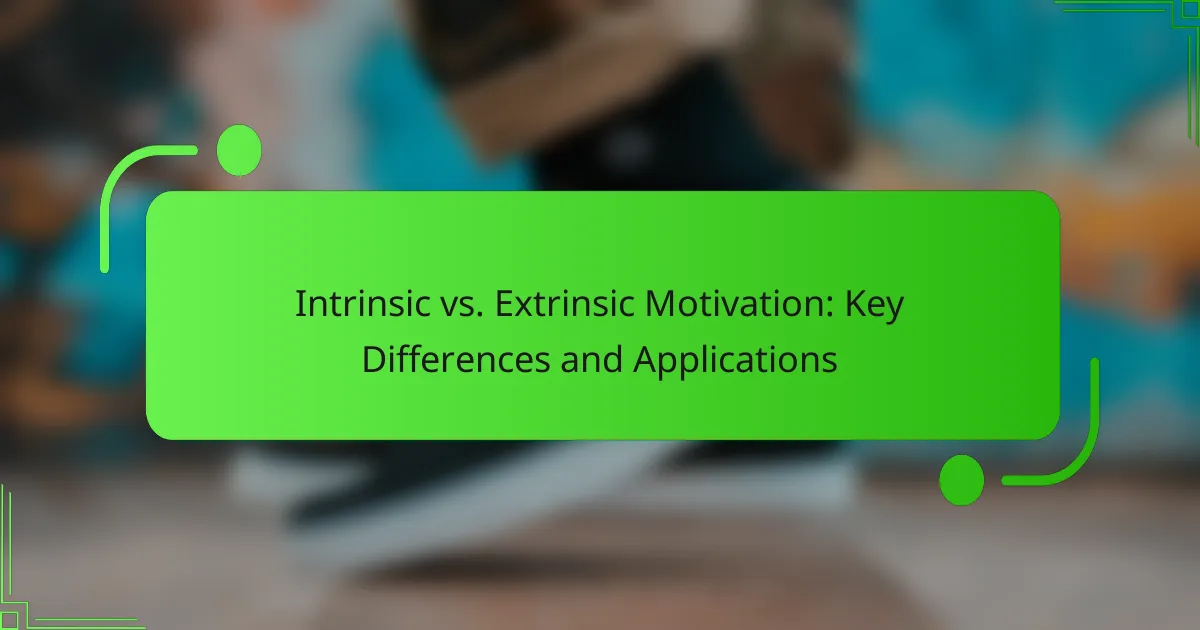Rewards play a pivotal role in enhancing workplace motivation, engagement, and performance. By recognizing employee efforts through various reward systems, organizations can foster a sense of value that drives commitment and productivity. From monetary incentives to recognition programs and career development opportunities, these rewards are essential in motivating employees and aligning their contributions with organizational goals.

How do rewards enhance workplace motivation in the US?
Rewards significantly enhance workplace motivation in the US by recognizing employee efforts and driving engagement. When employees feel valued through various reward systems, their motivation and commitment to their work naturally increase.
Increased employee satisfaction
Employee satisfaction often rises when rewards are implemented effectively. Recognizing achievements through bonuses, promotions, or even simple acknowledgments can create a positive work environment. For instance, companies that offer performance bonuses report higher job satisfaction rates among their employees.
To maximize satisfaction, tailor rewards to individual preferences. Some employees may appreciate financial incentives, while others might prefer additional time off or professional development opportunities.
Boosted productivity levels
Rewards can lead to increased productivity as employees strive to meet performance goals. When workers know that their efforts will be rewarded, they are more likely to put in extra effort to achieve targets. For example, sales teams often experience higher output when commission structures are tied to performance metrics.
Establish clear and attainable goals for rewards to ensure employees understand what is expected. This clarity helps maintain motivation and encourages consistent performance over time.
Enhanced team collaboration
Implementing rewards can foster greater collaboration among team members. When teams are rewarded collectively for achieving goals, it encourages cooperation and shared responsibility. For instance, team-based bonuses can motivate individuals to support one another in reaching common objectives.
To enhance collaboration, consider team-building activities as part of the reward system. These activities not only strengthen relationships but also create a sense of unity that can lead to improved overall performance.

What types of rewards drive employee engagement?
Employee engagement can be significantly enhanced through various types of rewards. These rewards can be categorized into monetary incentives, recognition programs, and career development opportunities, each playing a crucial role in motivating employees and improving performance.
Monetary incentives
Monetary incentives are direct financial rewards that can boost employee motivation and engagement. Common forms include bonuses, profit sharing, and salary increases, which can be tied to performance metrics or company profitability.
When implementing monetary incentives, consider the balance between fixed and variable pay. While fixed salaries provide stability, variable pay can drive performance. Aim for a mix that aligns with your organizational goals and employee expectations.
Recognition programs
Recognition programs acknowledge and celebrate employee achievements, fostering a sense of belonging and appreciation. These can range from simple verbal praise to formal awards and public acknowledgments.
To create effective recognition programs, ensure they are timely, specific, and aligned with company values. Regularly highlight individual and team accomplishments to maintain motivation and encourage a culture of recognition.
Career development opportunities
Career development opportunities involve providing employees with pathways for growth and advancement within the organization. This can include training programs, mentorship, and promotions based on skill development and performance.
Investing in employee development not only enhances engagement but also improves retention rates. Offer a variety of learning options, such as workshops, online courses, and cross-training, to cater to diverse employee needs and career aspirations.

How do rewards impact employee performance metrics?
Rewards significantly enhance employee performance metrics by motivating individuals to achieve higher productivity and engagement levels. When employees feel recognized and valued through rewards, they are more likely to contribute positively to their organization’s goals.
Improved sales figures
Implementing a rewards system can lead to improved sales figures as employees are incentivized to meet or exceed targets. For instance, sales teams that receive bonuses for reaching quarterly goals often show increases in performance by 10-20%. This motivation can drive competition among team members, further boosting overall sales.
To maximize the impact, consider setting clear, attainable sales targets and aligning rewards with specific achievements. Regularly reviewing performance metrics can help adjust strategies and ensure rewards remain effective.
Higher retention rates
Rewards play a crucial role in enhancing employee retention rates by fostering a sense of loyalty and satisfaction. Companies that offer recognition programs often see retention improvements of 25-50%, as employees feel valued and appreciated for their contributions.
To effectively leverage rewards for retention, focus on personalized recognition and consider implementing a tiered rewards system that acknowledges both short-term and long-term achievements. Regular feedback and communication about career development can further strengthen employee commitment.
Enhanced customer satisfaction scores
When employees are motivated through rewards, they tend to provide better service, leading to enhanced customer satisfaction scores. Engaged employees are more likely to go the extra mile, which can result in a noticeable increase in customer loyalty and positive feedback.
To connect rewards with customer satisfaction, consider linking employee performance metrics to customer feedback scores. This alignment encourages employees to prioritize customer experiences, ultimately benefiting the organization’s reputation and bottom line.

What frameworks support effective reward systems?
Effective reward systems are often supported by various psychological and motivational frameworks that help organizations understand employee needs and behaviors. Two prominent theories are Equity Theory and Maslow’s Hierarchy of Needs, which provide insights into how rewards can be structured to enhance motivation and engagement.
Equity theory
Equity Theory posits that employees are motivated by fairness in the workplace. When individuals perceive that their input-to-output ratio is equal to that of their peers, they are more likely to feel satisfied and engaged. Conversely, perceived inequities can lead to demotivation and decreased performance.
To apply Equity Theory, organizations should regularly assess employee contributions and rewards. This can involve transparent communication about compensation, recognition, and workload. For example, if two employees have similar roles and performance levels, their rewards should reflect that parity to maintain morale.
Maslow’s hierarchy of needs
Maslow’s Hierarchy of Needs is a motivational theory that categorizes human needs into five levels: physiological, safety, love/belonging, esteem, and self-actualization. According to this framework, individuals must satisfy lower-level needs before they can focus on higher-level ones, including motivation through rewards.
Organizations can leverage this hierarchy by ensuring that basic needs, such as fair pay and job security, are met first. Once these foundational needs are addressed, companies can implement recognition programs and opportunities for personal growth to fulfill higher-level needs, thereby enhancing overall employee engagement.

What are the best practices for implementing rewards?
Effective reward systems enhance workplace motivation, engagement, and performance by aligning incentives with employee needs and organizational goals. Best practices include tailoring rewards to individual preferences and regularly assessing their effectiveness to ensure they remain impactful.
Tailoring rewards to employee preferences
Understanding employee preferences is crucial for designing a reward system that resonates. Conduct surveys or hold discussions to gather insights on what employees value most, whether it’s monetary bonuses, additional time off, or professional development opportunities.
Consider implementing a flexible rewards program that allows employees to choose their preferred incentives. For instance, some may prefer cash bonuses, while others might value gift cards or experiences. This personalization can significantly boost engagement and satisfaction.
Regularly assessing reward effectiveness
To maintain a relevant and motivating reward system, regularly evaluate its effectiveness. Collect feedback from employees and analyze performance metrics to determine if the rewards are driving the desired behaviors and outcomes.
Establish a routine for reviewing the reward system, such as quarterly assessments. This allows for timely adjustments based on changing employee preferences or organizational goals, ensuring that the rewards continue to motivate and engage the workforce effectively.

How do cultural differences affect reward systems in global companies?
Cultural differences significantly influence how reward systems are perceived and implemented in global companies. Understanding these variations is crucial for effectively motivating and engaging a diverse workforce.



